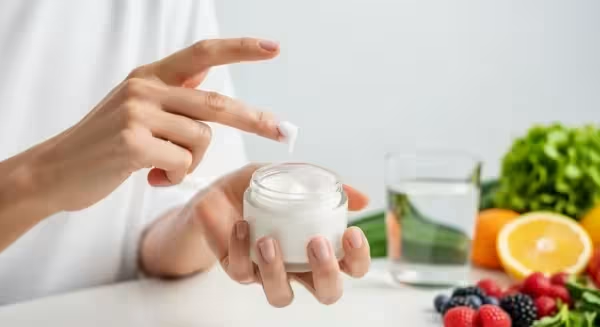
Welcome to a new and exciting chapter of your life! Retirement offers a wonderful opportunity to focus on what matters most—your health, happiness, and well-being. As we age, our immune system naturally changes, a process sometimes called immunosenescence. This simply means our body’s defense system can become a bit slower to respond. But the wonderful news is that you have tremendous power to support and strengthen it.
Think of your immune system as a dedicated personal security team. Your daily habits are the resources you give that team to help them do their best work. With a few simple, natural adjustments, you can provide top-notch support to keep yourself feeling vibrant and resilient.
This guide is designed to provide you with practical, actionable wellness tips to help you build a robust foundation for your health. We’ll explore natural ways to boost your immunity, empowering you to enjoy your retirement years to the fullest.
A friendly reminder: Your health is unique. It’s always a great idea to chat with your doctor or a registered dietitian before making any significant changes to your diet, exercise, or supplement routine. They can provide personalized advice that’s right for you.
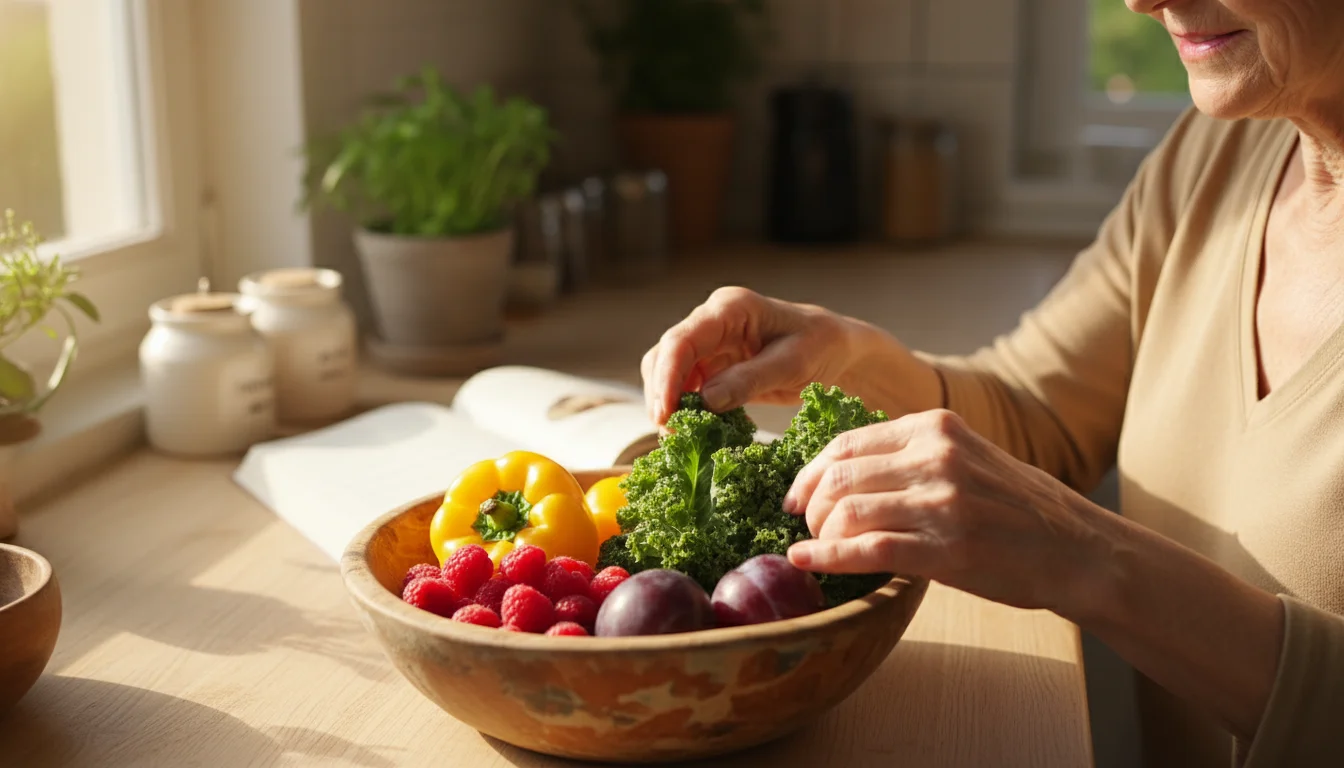
1. Embrace a Rainbow on Your Plate
The ‘Why’: Food is one of the most powerful tools for senior immune health. A diet rich in colorful fruits and vegetables provides your body with antioxidants. Think of antioxidants as protectors that guard your cells against damage from environmental stressors. Vitamins and minerals like Vitamin C, Vitamin E, Vitamin A, zinc, and selenium are essential building blocks for your immune cells. Eating a variety of nutrient-dense foods gives your body the raw materials it needs to build a strong defense.
The ‘How’:
Making small, consistent changes is the key to success. You don’t need to overhaul your entire diet overnight.
- Add One New Color: Each week, challenge yourself to add one new colorful fruit or vegetable to your meals. If you normally have green beans, try adding some sliced red bell peppers. If you enjoy apples, try a handful of blueberries in your morning oatmeal.
- Focus on Key Nutrients:
- Vitamin C: Found in oranges, grapefruit, strawberries, bell peppers, and broccoli.
- Vitamin E: Found in nuts like almonds, seeds like sunflower seeds, and spinach.
- Zinc: Found in lean meats, chickpeas, lentils, and pumpkin seeds.
- Lean Protein Power: Ensure you’re getting enough protein from sources like chicken, fish, beans, and tofu. Protein is crucial for building the antibodies and immune cells that fight off invaders.

2. Prioritize Quality Sleep
The ‘Why’: Sleep is not a luxury; it’s a biological necessity for a strong immune system. While you sleep, your body is hard at work repairing itself. It releases proteins called cytokines, some of which help promote sleep while others are needed to fight infection and inflammation. When you don’t get enough quality sleep, the production of these protective cytokines decreases, making you more vulnerable to viruses.
The ‘How’:
If you find it harder to get a full night’s rest, you’re not alone. Many seniors experience changes in their sleep patterns. Creating a relaxing sleep routine can make a big difference.
- Create a Bedtime Ritual: About 30-60 minutes before you plan to sleep, wind down. This could mean reading a book (a real one, not on a bright screen!), listening to calming music, taking a warm bath, or doing some gentle stretches.
- Optimize Your Bedroom: Keep your bedroom cool, dark, and quiet. Blackout curtains or a comfortable eye mask can be very helpful.
- Limit Screen Time: The blue light from phones, tablets, and TVs can interfere with your body’s production of melatonin, the sleep hormone. Try to put them away at least an hour before bed.
- Watch the Caffeine: A cup of coffee in the morning is fine for most, but try to avoid caffeine in the afternoon and evening, as its effects can last for hours.
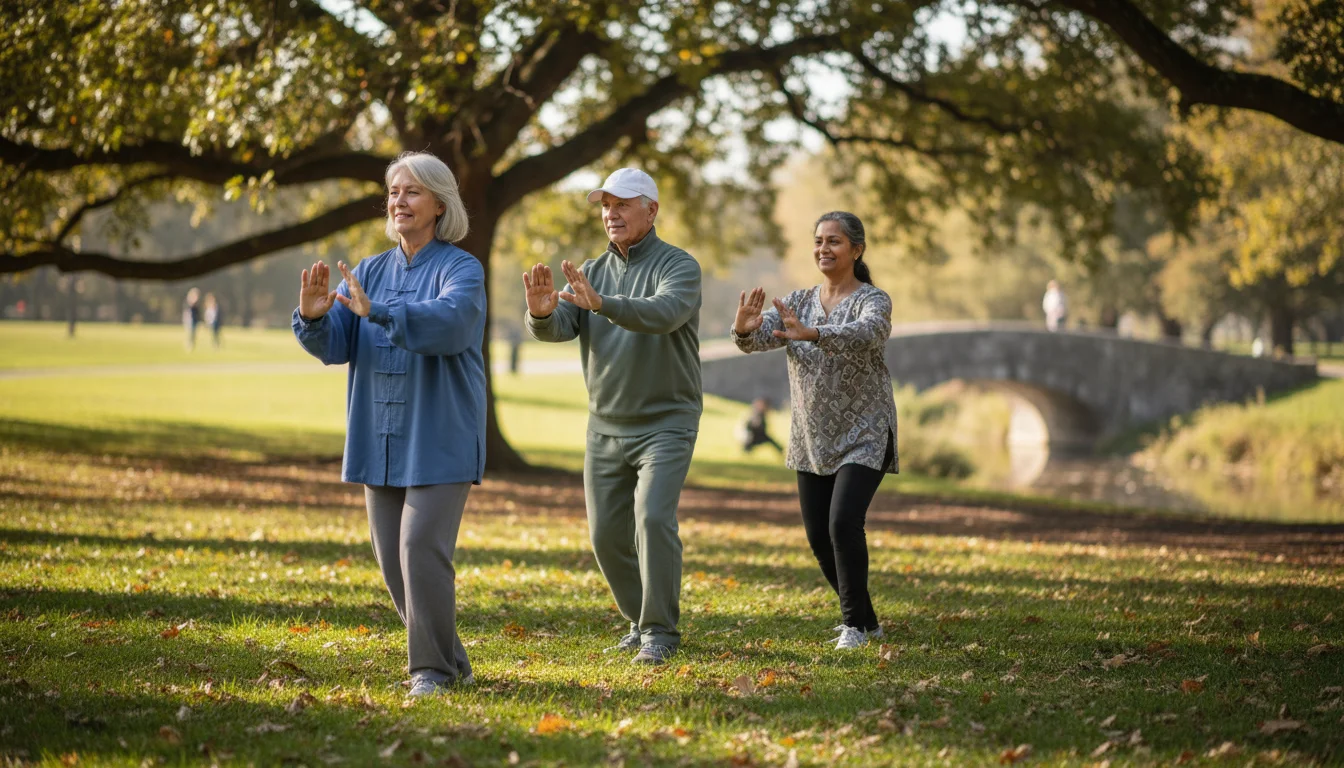
3. Stay Active with Gentle Movement
The ‘Why’: Regular, moderate exercise is one of the best natural immune boosters available. Physical activity improves your circulation, which allows your immune cells and other infection-fighting substances to move more freely throughout your body. This means they can find and deal with potential problems more efficiently. Movement is also a fantastic way to reduce stress, which in turn supports your immune health.
The ‘How’:
The goal is consistency, not intensity. Find activities you genuinely enjoy.
- Start with Walking: A brisk 20-30 minute walk each day is an excellent starting point. It’s low-impact, free, and gets you out in the fresh air. Make sure you have supportive and comfortable walking shoes.
- Try Tai Chi or Gentle Yoga: These practices are wonderful for improving balance, flexibility, and strength. They also incorporate deep breathing and mindfulness, which are excellent for stress reduction. Many community centers and online videos offer classes specifically for seniors.
- Consider Water Aerobics: Exercising in the water is easy on your joints while still providing a great workout for your heart and muscles. It’s a fun, social way to stay active.
- Listen to Your Body: The most important rule is to start slowly and pay attention to how you feel. It’s better to do a little bit every day than to overdo it once a week.
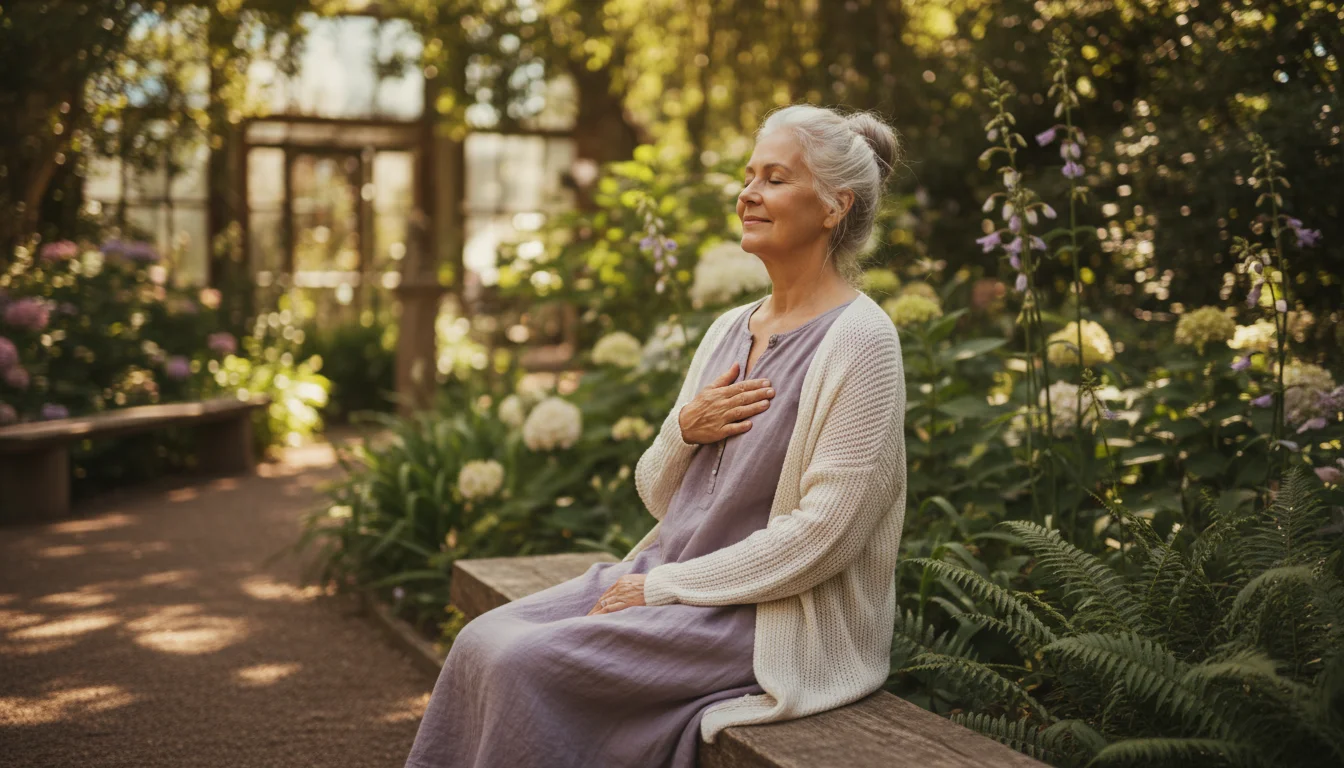
4. Manage Stress Mindfully
The ‘Why’: Life is full of stressors, and while short-term stress is normal, long-term or chronic stress can take a toll on your immune system. When you’re constantly stressed, your body produces high levels of the hormone cortisol. Over time, elevated cortisol can suppress your immune system’s effectiveness, leaving you more susceptible to illness. Learning to manage stress is a key part of your retirement wellness plan.
The ‘How’:
Mindfulness doesn’t have to be complicated. It’s about bringing gentle, non-judgmental awareness to the present moment.
- Practice Deep Breathing: When you feel stressed, take a moment to pause. Inhale slowly through your nose for a count of four, hold your breath for four, and then exhale slowly through your mouth for a count of six. Repeat this a few times to calm your nervous system.
- Engage in Hobbies: Retirement is the perfect time to dive into hobbies that bring you joy and help you relax. This could be gardening, painting, knitting, woodworking, playing a musical instrument, or doing puzzles.
- Spend Time in Nature: Even just sitting on a park bench or in your garden can lower stress levels and improve your mood. The simple act of observing nature is incredibly restorative.
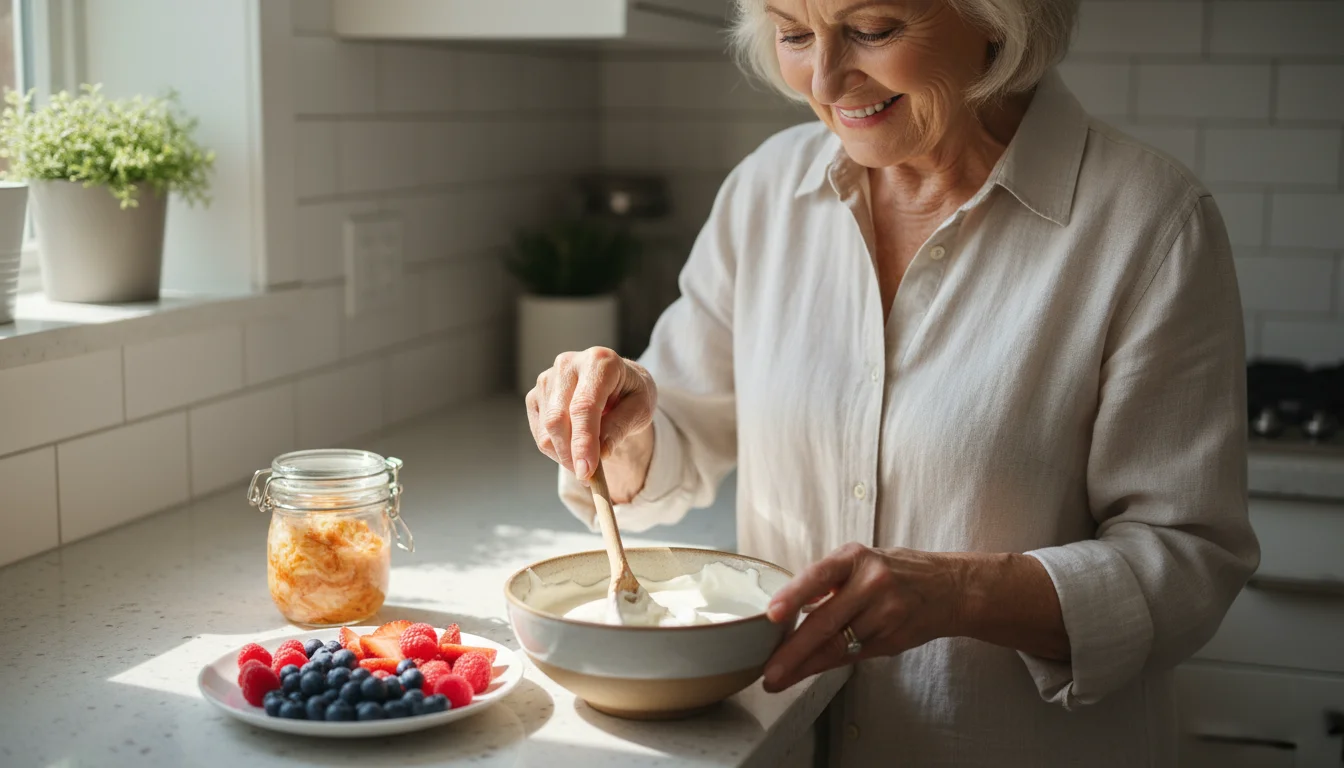
5. Nurture Your Gut Health
The ‘Why’: It might surprise you to learn that up to 70% of your immune system resides in your gut! Your digestive tract is home to trillions of beneficial bacteria that play a vital role in training and supporting your immune cells. A healthy, balanced gut microbiome is a cornerstone of strong immunity. When this balance is off, it can affect your body’s ability to defend itself.
The ‘How’:
You can support your gut health directly through your diet.
- Incorporate Probiotics: Probiotics are the “good” bacteria. You can find them in fermented foods like plain yogurt (look for “live and active cultures” on the label), kefir (a fermented milk drink), sauerkraut, and kimchi. Start with small amounts to see how your system responds.
- Feed the Good Bacteria with Prebiotics: Prebiotics are types of dietary fiber that your good gut bacteria love to eat. You can find prebiotics in foods like onions, garlic, bananas, asparagus, and whole grains like oats.
- Stay Fiber-Focused: A high-fiber diet from fruits, vegetables, and whole grains keeps your digestive system moving and provides plenty of food for your healthy gut bugs.

6. Stay Hydrated Throughout the Day
The ‘Why’: Water is essential for every single function in your body, including your immune response. It helps your body produce lymph, which carries your white blood cells and other immune cells. Staying well-hydrated also helps your kidneys flush out waste products from your body. As we get older, our sense of thirst can diminish, making it easier to become dehydrated without even realizing it. This makes consciously sipping water throughout the day even more important.
The ‘How’:
“Drinking more water” is easier said than done. Make it a simple, automatic habit.
- Keep a Water Bottle Nearby: Have a dedicated reusable water bottle and keep it with you as you move around the house. Seeing it will remind you to take a sip.
- Set a Schedule: Try to drink a glass of water at specific times—when you wake up, with each meal, and before you go for a walk.
- Make it Interesting: If you find plain water boring, infuse it with flavor. Add a few slices of lemon, cucumber, mint, or berries to your water pitcher. Unsweetened herbal teas (hot or iced) also count!
- Eat Your Water: Many fruits and vegetables have high water content. Watermelon, cucumbers, celery, and soups are all great ways to contribute to your daily hydration.

7. Nurture Your Social Connections
The ‘Why’: Your emotional and social well-being are directly linked to your physical health. Feelings of loneliness and isolation can act as a form of chronic stress, which, as we’ve learned, can weaken the immune system. In contrast, positive social interactions can boost your mood, reduce stress, and give you a sense of purpose and belonging—all of which contribute to a healthier you.
The ‘How’:
Retirement is a great time to reconnect with old friends and make new ones.
- Schedule Regular Connections: Be intentional about reaching out. Set up a weekly phone or video call with family or friends who live far away. Plan a regular coffee or lunch date with local friends.
- Join a Group: Explore local community centers, libraries, or places of worship for groups that match your interests. This could be a book club, a walking group, a card game league, or a gardening club.
- Volunteer: Sharing your time and skills with a cause you care about is a wonderful way to meet like-minded people and feel a strong sense of purpose.
- Embrace Technology: If mobility is a challenge, social media and video calls can be fantastic tools for staying in touch with loved ones and even joining online communities.
Building a stronger immune system is a journey, not a destination. By incorporating these natural, gentle habits into your daily life, you are taking powerful steps to support your body’s defenses. Be patient and kind to yourself, celebrate small victories, and enjoy the feeling of investing in your long-term health and vitality.
Remember, your well-being is the foundation for a happy and fulfilling retirement. Here’s to your health!
For expert guidance on senior health and finance, visit Administration for Community Living (ACL), Eldercare Locator, AARP and Alzheimer’s Association.
|
Fact-Checked Content
Our editorial team reviews all content for accuracy and updates it regularly. Learn about our editorial process →
|




